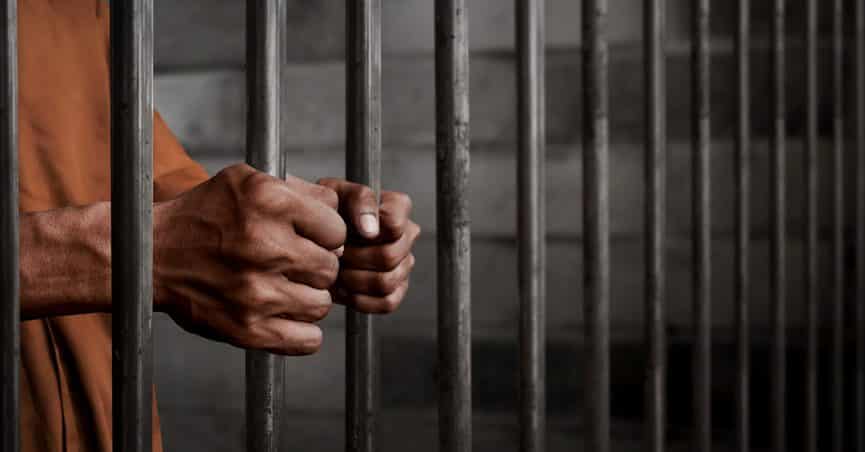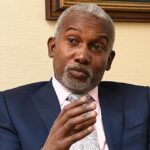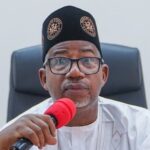The formula for selecting a viable pair to have the highest numbers in the 2023 presidential election appears to be harder than it was in past elections, and this has become a ground for our politicians to contemplate the tickets that can attract high payoffs. But some of the proposed strategies to appeal to Nigerians at the polls are being frustrated by the ambition of certain political heavyweights who are set to defy the most familiar regional, ethnic and religious compromises often adopted to win elections. This has left the major political parties at the mercy of one another, each unsure of the other’s next move.
As the election year draws close, the signs of this prisoner’s dilemma stare us in the face. The ruling All Progressives Congress (APC), for instance, is structured to hand the power over to a Southerner, and predictably Christian, based on the party’s ethical pact to rotate power. The proposed candidate’s background is to compensate for the eight years of a Northern Muslim presidency. The equation seems easy to balance. APC has a legion of upstanding Christians from the South, and the cerebral Vice President, Professor Yemi Osinbajo, seems to cut the profile. It should’ve been him against the party’s governors’ forum, which is a powerful influence in determining the party’s presidential candidate.
But APC’s road to 2023 is a stretch of a thousand potholes, and this is due to the interest of former Lagos State governor, Bola Ahmed Tinubu. The politician has functioned as a kingmaker and a large-hearted principal of the cast of potential aspirants in the party, and the parameter of his influence means that APC would condone a Muslim from the South to run for president. The problem is, since the Peoples Democratic Party (PDP) is unlikely to play the same game, knowing it can field a northern Muslim as to take the bulk of the votes, Tinubu too may seek a Northern Muslim as running mate. This, of course, has happened in the past when M. K.O. Abiola, a Yoruba Muslim, chose Borno-born Babagana Kingibe as running mate, and the Muslim – Muslim ticket led to victory against the Muslim—Christian ticket of Bashir Tofa and Sylvester Ugoh.
Tinubu’s investment in the APC is consequential, and so is the allegiance of his political mentees. He’s the leader of the party and the architect of the coalition that ousted then-President Goodluck Jonathan of the PDP. Even the Vice President, who’s being tipped to succeed President Muhammadu Buhari, counts as his political mentee. So, the possibility of his candidature can’t be erased and Nigerians must prepare for it and whatever backlash it draws from the party and the country.
A few months ago, when the idea of Tinubu candidature began to dawn on Nigerians, there was whispering in some political camps around the option of former Speaker of the House of Representatives, Yakubu Dogara, a Northern Christian, as his possible running mate. Perhaps it’s the fear of the PDP fielding a Northern Muslim against a Tinubu ticket that relegated the idea. And the attention to the North East as the hub of his running mate, a move away from the North West that has produced the president twice since 1999, signals to the Abiola experiment. The options have spread even more to Kingibe’s home state and, lately, Senator Kashim Shettima and his successor, Governor Babagana Zulum, are being tipped as possible vice presidential candidates, even to candidates other than Tinubu.
While Zulum seems unlikely to not seek re-election, which is a smarter decision for a state still in need of his servant-leadership, Shettima remains a quintessential option. He’s immensely experienced and possesses attractive leadership credentials, and his bankability is driven by his antecedents as the chief security officer of a conflict-ridden state, connections among both governors and federal lawmakers, and his much-cited model succession plan in Borno state. And if either ends up with a Tinubu ticket, this may be a repeat of the Abiola – Kingibe ticket; an allowance between the South West and the North East.
PDP’s unpredictable ticket is exactly why the APC is still in the balance. The former’s desperation to retake power means they are prepared to field a candidate other than a southerner to polarize the election, and they’ve given a clue about not being bound by APC-type rotational arrangement in 2023. If the PDP settles for a Northern Muslim candidate, of which notable names like former Vice President Atiku Abubakar, Sokoto state Governor Aminu Waziri Tambuwal and former Kano State Governor Rabiu Musa Kwankwaso are already being marketed, the election may take a frightening turn.
The practicality of the Abiola experiment in a dangerously disinformed country would be a subject of intense analysis in the coming months as would the reincarnation of Tofa’s defeatism. While the PDP’s choice of a Northern Muslim to succeed Buhari may revive the born-to-rule outrage against the so-called northern oligarchy, their desperation to recapture power overrides such moral indictment. But the APC is wary of what such a ticket would do at the polls, and hence the hesitation to embrace a northern Christian as running mate.
But the scariest outcome would be when the APC settles for a Southern Christian and the PDP a Northern Muslim. This, without a doubt, would amplify the country’s religious and regional tensions in a fashion worse than the Buhari – Jonathan face-off in 2015. Whichever way these two major political parties design their power-capturing strategies in 2023, there’s no easy strategy. They are all torn between the ethical challenge of adhering to their rotational formula and the reality of realpolitik. In the end, the aim of each political camp isn’t to be the nation’s moral beacon but to occupy Aso Rock—by any means necessary.
Always missing in the discourse of realpolitik, however, is the “third force,” which seems to present largely theoretical appealing and utopian options, but politics isn’t school debate or morality contest, and their boardroom approach to power is a leap to nowhere. As it stands today, the threats of third force alternatives would only emerge after factions of the APC and the PDP break away if or when the parties’ next moves yield unwanted payoffs and decide to reconcile their interests, structures and resources to beat the system that made them. Then, and only then, can we have a clearer picture of 2023.

 Join Daily Trust WhatsApp Community For Quick Access To News and Happenings Around You.
Join Daily Trust WhatsApp Community For Quick Access To News and Happenings Around You.


